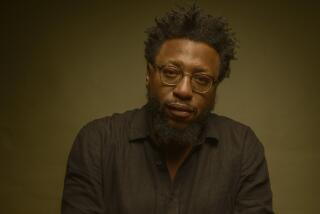Power and Art
Writers are contrarians. Ask a group of them a simple question -- What might the presidency of Barack Obama mean for literature and culture? -- and you get a range of answers, from the high-minded to the tongue-in-cheek. You get essays, riffs, wishes for the future as well as reflections on the past and what it has meant. You get, in other words, the kind of mix that feels only appropriate at a moment in our history when so many of us are caught somewhere between hope and terror, looking forward to a new era in American politics, even as we worry about an economy in free fall and a world that daily seems to grow more chaotic. ¶ At such a time, it makes sense to turn to writers. As contrarians, they are comfortable balancing opposing principles and conflicting ideas. In some sense, this is part of the appeal of Obama, who is, among other things, a writer and, as such, familiar with nuance and ambiguity.
The president-elect was not available to write an essay on what his upcoming tenure might mean for the country’s art and intellectual life. But in this selection of pieces to mark his inauguration, a number of insightful observers have weighed in.
Susan Straight and Rubén Martínez write, respectively, on race and representation, which have been changed (or complicated) irrevocably by the promise of an Obama presidency.
Jane Smiley and Rebecca Solnit write about the political responsibilities of the writer, each touching, in her own way, on how the last eight years have made possible the change Obama represents.
Ben Ehrenreich offers up a pointed bit of satire. And Ted Widmer presents a capsule history of presidents and culture, suggesting that it is sometimes the least expected chief executive who has the greatest effect.
-- David L. Ulin
More to Read
The biggest entertainment stories
Get our big stories about Hollywood, film, television, music, arts, culture and more right in your inbox as soon as they publish.
You may occasionally receive promotional content from the Los Angeles Times.






